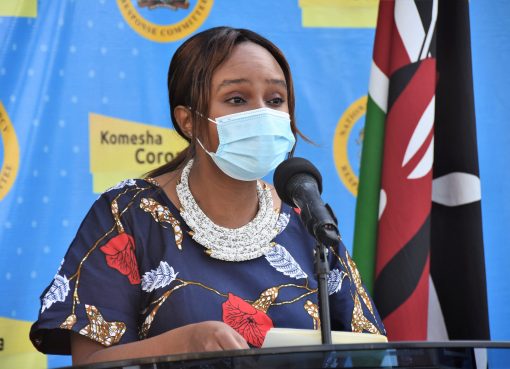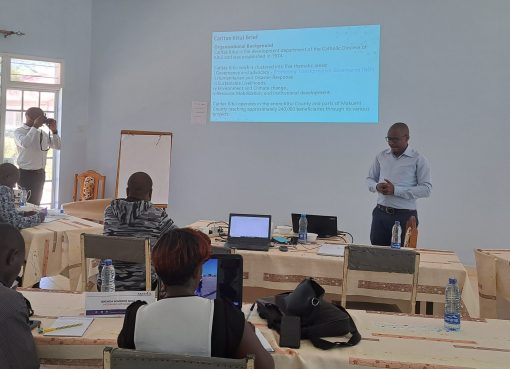Parents have been urged to allow their 10 year old daughters to be vaccinated against Human Papilloma Virus (HPV) with a view to protecting them from contracting cervical cancer later in life.
The Nakuru County Executive for Health, Dr. Kariuki Gichuki dismissed claims that the vaccines were not safe, saying that they had been approved by the World Health Organization (WHO).
Speaking at the Bondeni Maternity Hospital where he launched the programme that targets 43,000 girls across the county on Tuesday, Dr. Gichuki said the vaccine will be offered free of charge at all public and private hospitals across the county.
He said that studies had shown that HPV contributes towards cervical cancer that has been identified as one of the leading causes of death among women in the country.
Statistics indicate that at least 3,000 women in the country lose their lives to cervical cancer each year, a figure that health officials’ hope can be reduced by minimizing exposure to the disease.
The health executive criticized religious leaders who are against the vaccine, saying that their fears were unwarranted and called for concerted efforts from all stakeholders to support the government efforts in securing a healthy future for the young girls.
“We all want a healthy nation. HPV prevention is a major stride in the fight against cervical cancer and that is why we are saying let us join hands in protecting our girls from cervical cancer,” said Dr. Gichuki.
His sentiments were echoed by Nakuru County Chief Officer for Public Health, Dr. Samuel King’ori who lauded the move, saying it will help in preventing cervical cancer that according to statistics continues to infect 14 million women every year across the world.
“The vaccine will go a long way in preventing cervical cancer. The vaccine will be administered in all our facilities and we appeal to parents to support the exercise,” he said.
Dr. King’ori added that health workers and community health volunteers in all sub counties have been trained on the vaccination program, hence there was no need to worry about its administration.
While launching the exercise last week, President Uhuru Kenyatta cautioned religious leaders against politicizing the HPV vaccination, advising them to instead embrace it.
The Catholic Church has strongly opposed the exercise and is instead, urging members to practice sexual abstinence.
HPV vaccination has been rolled out and embraced by 115 countries globally.
According to WHO, 99 percent of cervical cancer cases globally are linked to exposure to HPV. The Virus is also listed as most common viral infection of the reproductive tract.
Dr. Kariuki said though cervical cancer was now the top killer of women in the country, the society had not understood the link between HPV and the disease.
“There is a lot of ignorance out there about HPV and how it can be prevented. Unfortunately misconceptions about intervention strategies against cancer are being fuelled by influential members of the clergy. The vaccine helps prevent over 95% of infections from HPV types 16 and 18 hence very effective in the long term in bringing down cervical cancer cases,” noted Dr. Gichuki.
The vaccine is said to be most effective when administered between the ages of nine and 14.
Kenya will however, target the 10 year old girls only due to a global shortage of the vaccine occasioned by massive roll out.
The devolved unit is working with religious leaders, community based organizations, elders and media practitioners in disseminating information over the link of HPV to cancer and the safety and effectiveness of the vaccine
“We highly respect our religious leaders but matters of immunization are better left to medical experts. All Kenyans have to reflect and secure the health and well being of our future generations,” said the county executive.
HPV is called a silent infection because there are no symptoms. There are over 100 varieties of HPV, more than 40 of which are passed through sexual contact. The only way for a woman to know she is infected with the virus is through taking the Pap smear test.
The World Health Organization recommends vaccination of all girls and screening, at least once every year, for older women to reduce cancer risk.
Data by the International Agency for Research on Cancer show cervical cancer is the second most common type of cancer in Kenya, while statistics from the Ministry of Health show that 7 women succumb to cancer per day in Kenya, translating to 3,000 per year.
By Jane Ngugi



